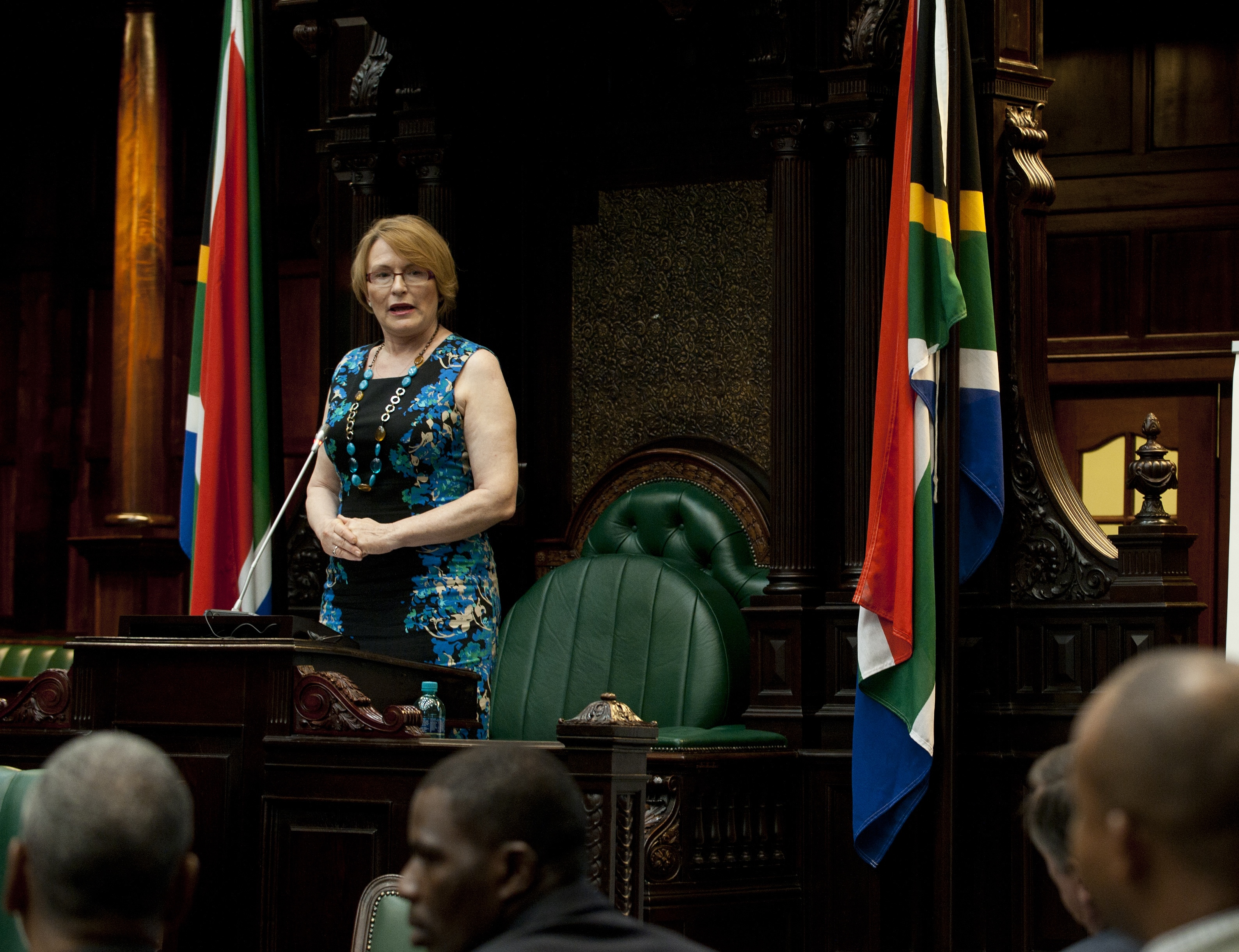South Africa
Government of National Unity and a liberal perspective

Helen Zille speaking at ALDEPAC meeting in 2018
© Friedrich Naumann Foundation for FreedomThe Friedrich Naumann Foundation for Freedom hosted an insightful discussion on July 31, 2024, focusing on the complexities of post-election South Africa and the path forward under the Government of National Unity (GNU). The second instalment of Freedom Dialogue featured Democratic Alliance (DA) Federal Chairperson Helen Zille, who provided a nuanced understanding of the challenges and opportunities presented by this unprecedented coalition government.
GNU's "honeymoon phase"
Helen Zille described the GNU as being in its "honeymoon phase," highlighting the cyclical nature of political coalitions. She noted the initial optimism and inevitable challenges that such coalitions face. Zille acknowledged the difficult concessions the DA had to make in the coalition, explaining the negotiation process where details and definitions were contentious points. The DA stood firm on sufficient consensus, with Zille recounting the intense negotiations that took place in the early hours before the election in parliament.
Zille emphasised the DA's leverage in the GNU and its ongoing fight for key principles, noting the DA's unique position and the limited influence of other parties within the GNU. She predicted that no party would achieve a majority again due to South Africa’s proportional system, where a party needs a significant number of votes rather than an outright majority. She stressed the importance of consolidating the vote to "save our country," underscoring the DA's role as an institution with robust systems, processes, and a strong intellectual foundation.
Merit-based appointments and market economy
One of the key points Zille made was the GNU's commitment to merit-based appointments, signalling an end to cadre deployment in the South African government. Zille levelled criticism against leftist economic policies citing South Africa's crisis of poverty and unemployment. She argued that under democratic conditions, only market economies could be relied upon to stimulate growth, generate investment and create jobs. She contended that policies such as Black Economic Empowerment (BEE) had proven to be ineffective to resolving South Africa's crisis.
Reflecting on the multiparty charter agreement ahead of the 2024 elections, Zille mentioned its demise post-election. She emphasised the DA's stance against being manipulated by those who do not grasp voter sentiment.
The discussion highlighted the evolving political landscape in South Africa, emphasising the DA's strategies and the complexities of coalition governance in the GNU era. Helen Zille’s insights provided a comprehensive look at the challenges and opportunities that lie ahead for South Africa under this new coalition government.
